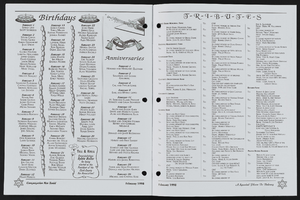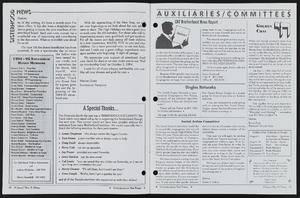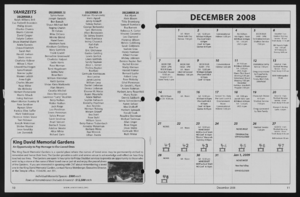Search the Special Collections and Archives Portal
Search Results

Interview with Ernest Benjamin Williams, March 26, 2004
Date
2004-03-26
Archival Collection
Description
Narrator affiliation: Budget and Logistics, Atomic Energy Commission, U.S. Department of Energy
Text
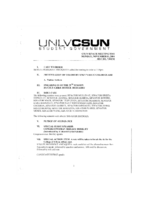
Meeting minutes for Consolidated Student Senate, University of Nevada, Las Vegas, November 01, 2004
Date
2004-11-01
Archival Collection
Description
Includes meeting minutes and agenda.
Text
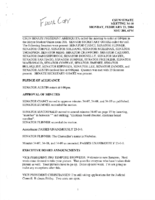
Meeting minutes for Consolidated Student Senate, University of Nevada, Las Vegas, February 23, 2004
Date
2004-02-23
Archival Collection
Description
Includes meeting minutes, along with additional information about advertisements and assessments. CSUN Session 34 Meeting Minutes and Agendas.
Text
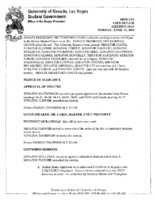
Meeting minutes for Consolidated Student Senate, University of Nevada, Las Vegas, April 12, 2004
Date
2004-04-12
Archival Collection
Description
Includes meeting minutes and agenda.
Text

Interview with William Marvin Swena, October 29, 2004
Date
2004-10-29
Archival Collection
Description
Narrator affiliation: Assistant Mining Superintendent, Reynolds Electrical and Engineering Company (REECo)
Text
Pagination
Refine my results
Content Type
Creator or Contributor
Subject
Archival Collection
Digital Project
Resource Type
Year
Material Type
Place
Language
Records Classification

